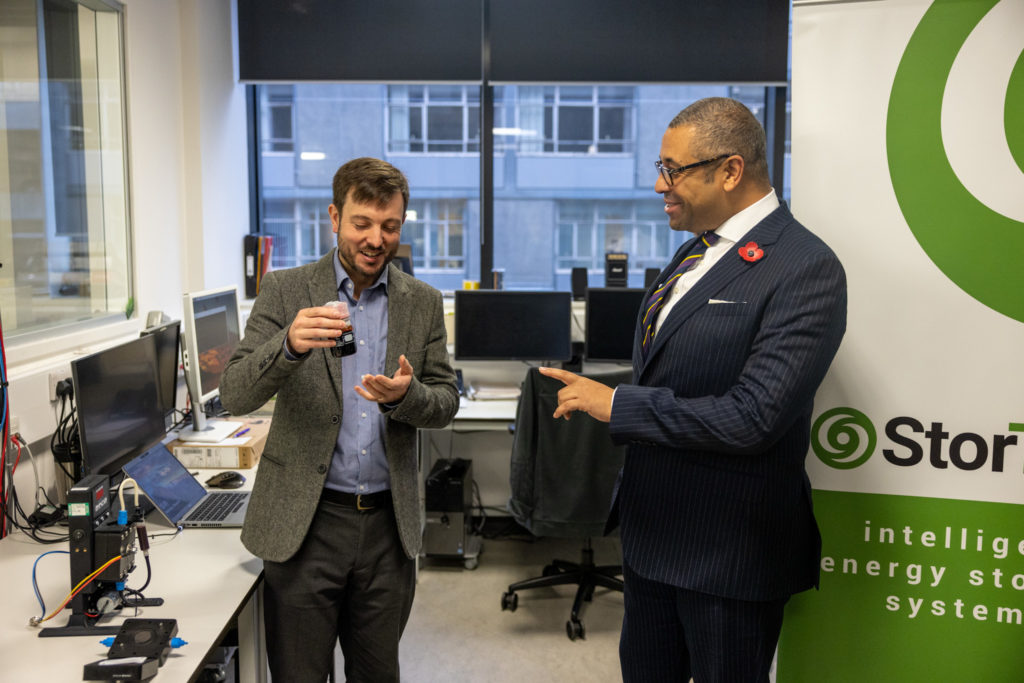
Foreign Secretary James Cleverly paid a visit to Glasgow to meet the researchers contributing to pioneering new battery technology for a greener future. The trip comes one year since COP26 and was an opportunity to showcase the developments taking place at the Universities of Strathclyde and St Andrews with the support of the Transforming Energy Access (TEA) platform.
TEA is a research and innovation platform supporting the technologies, business models and skills needed to enable an inclusive, clean energy transition. The UK aid support from TEA via the Faraday Institution, the UK’s flagship electrochemical research institute, has enabled battery experts and researchers to progress towards low cost, scalable and recyclable battery technologies for developing countries.
Researchers from both the University of Strathclyde and the University of St Andrews showcased how investment into research for clean energy solutions is vital in propelling us to a greener, more secure future.
The UK Government’s £126 million scale-up funding for TEA announced at COP26 marked a clear commitment to continue providing improved access to energy that is affordable, reliable and low carbon. Since 2015, TEA has contributed to improved energy access for over 16 million people across and generated over 96,000 green jobs in sub-Saharan Africa, South Asia and Indo-Pacific regions.
Foreign Secretary James Cleverly said: The UK Government is proud to support vital work at the universities of Strathclyde and St Andrews which will help developing countries to access battery technologies to drive green growth and give millions a ladder out of poverty.”
Professor Sir Jim McDonald, Principal & Vice-Chancellor of the University of Strathclyde, said: “We were delighted to host a visit by the Foreign Secretary and to show him the range of work we’re doing at Strathclyde to support access to clean, reliable and sustainable energy to those around the world who need it.
“We are committed to urgently addressing climate change and the UN Sustainable Development Goals while taking a whole systems approach that considers the interdependencies between environmental, societal and economic challenges the global community faces and that informs the implementation of policy, technology and investment priorities.”
Professor John Irvine of University of St Andrews said: “FCDO funding has been crucial in allowing us to target applications in the developing world and improve access to sustainable energy.”
Faraday Institution CEO Professor Pam Thomas said: “The need for multiple, commercially-available battery technologies has never been greater to meet the needs of almost 800 million people worldwide without access to electricity.
“Investments by FCDO and the Transforming Energy Access programme leverage the Faraday Institution and are delivering cutting edge research to advance progress towards sustainable development goals, improving energy access in emerging economies.”